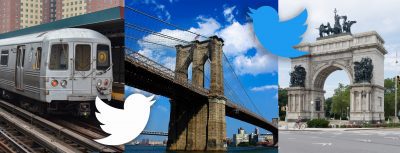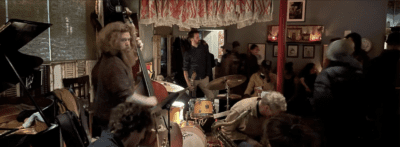Courtesy NYU Langone Hospital
A Brooklyn doc’s warning on Covid: ‘We’re going to see an increase over the winter’
Dana Mazo, of NYU Langone Hospital-Brooklyn, breaks down the current state of play on Covid, the flu, masking, vaccines and more
Don’t shoot the messenger, but we’re not out of the woods yet. Flu season is upon us, and with the holidays approaching, medical experts expect new coronavirus subvariants and a general uptick in cases. Already, according to Dana Mazo, an infectious disease specialist and assistant clinical professor of medicine at NYU Grossman School of Medicine, hospitalizations are at a higher rate this November than the same period last year.
Currently, the New York City caseload is holding steady — thanks in part to the vaccine — but with a public that’s tired of masking and generally fatigued with nearly three-year-old pandemic, experts like Mazo are bracing for a challenging winter.
Just today, there have been reports of new highs in case numbers in China and a spread of Covid throughout Australia. Mazo, who also runs an outpatient clinic at NYU Langone Hospital in Sunset Park, spoke with Brooklyn Magazine about the coming flu season, the current understanding of Covid rates in the city and what you need to know ahead of your own holiday travel.
This interview has been lightly edited for flow and readability.


Dana Mazo
What are you seeing right now in Brooklyn or across the city in terms of Covid? Are cases going up? I read this morning that they’re sort of stable but slightly increasing. What are you seeing on the ground?
Interestingly, we definitely are seeing more people admitted at this time, beginning of November this year, than we did last year. We’ve really seen about the same number of patients admitted, really since the middle of June, give or take a few. And so really since the middle of June we have been at higher levels of hospitalizations than we were most of the fall of last year. We’re sort of almost at a new norm.
The case numbers are all sort of hard to interpret, because so many people will do at home testing. And so that doesn’t get reported to the city. The actual city numbers right now are that the percentage of positive is about stable cases increasing, hospitalizations and deaths about stable, possibly decreasing. And I would say, in the hospital, we are seeing admissions probably stable to maybe increasing. It’s still a little early, so hard to know what we’re seeing, whether it’s sort of a one-off or if we’re at a trend. But we are definitely not seeing an explosion of cases.
So what should someone reading this today take away from that?
We’re starting to see cases increase. We haven’t seen hospitalizations increase yet, but they usually lag. So we are concerned that we’re going to see an increase in the winter. And one of the key things about Covid right now is, as it seems to be every winter, a concern about changes of variants, sub-variants. In this case the growing sub-variant is the BQ1 lineage. So a special type Omicron, this is all in the Omicron, but sort of different versions of Omicron. Why we call it sub-variants.
And the big concern about this one is especially for immune compromised and high risk patients, the monoclonal antibodies that we have been giving people to prevent hospitalization and death don’t work against this variant, the sub-variant. So we’re nervous especially about our immune suppressed patients and older patients, that sort of one of the tools in our armamentarium, one of our treatments to keep them out of the hospital to prevent them from getting as sick, we aren’t going to have anymore.
So what are you advising people, especially going into the season of travel, possible new strains, as you said? In January of this year, we saw that big spike after the holidays. What’s the best advice? Obviously the mask mandates are gone, people would like to believe this is not an issue anymore. When you yourself are traveling, are you masking up?
I am. Yeah. Clearly the masking and social distancing does really help. And so really these are personal decisions about risks and benefits. So especially if you are someone who is older or immune compromised or higher risk for some other comorbidity, when you are in a crowded indoor place, I would definitely mask. I wear my mask on the subway. I’m going to go see family on Thanksgiving, so if I take the train, I will wear a mask. I take a mask if I’m in a taxi or an Uber, because you’re in an enclosed place with someone else.
I’m reading the headlines just today, this is Friday. Bloomberg News says China’s daily infection rate exceeded 10,000 for the first time since April. The Guardian is reporting Covid cases are exploding across Australia. What do you take away from news like this? Is there a silent wave heading our way?
I do think we’re going to see an increase over the winter. This is going to become like the flu, something that we see increases every winter. And it’s for a lot of reasons, including that people spend more time together inside, where it’s more easily spread. And so I do expect to see an increase over the winter. And definitely the mix, with the greater proportion of the sub-variants that the monoclonal antibodies won’t work against, I am worried that for immune compromised people or the elderly or other at risk that people could get sick again.
I definitely am expecting to see an increase in cases. I am hopeful that our hospitals will not be overwhelmed. And one of the real reasons of that is because of vaccination. For most people, it provides really good protection against getting severely ill. It’s especially important to use the other behavioral modifications of wearing a mask in crowded places, social distancing. And one of the huge things is if you’re feeling sick, to stay away from other people, especially high risk people.
I imagine people have not been getting their boosters at the rates you’d like to see. It must be frustrating to you as a medical professional, to see the idea of Covid being equated to an annoying flu. And you sort of alluded to this, you almost see a devaluing of lives of people who are at risk or old or susceptible. It’s like, “Oh, it’s only those people. We don’t have to worry about it for ourselves.” How do you change that mindset in people?
Well, there are two things. One is that people who are at high risk is a broader range than most people think, because there are many comorbidities that are quite common in the U.S., with heart disease, with obesity, so it does include a larger group of people than people initially think. But I think that one of the most important ways to protect yourself is to take the vaccine.
The other way that it does impact you is that, if we do see a lot of people admitted in the hospitals again, that impacts you if you or your family members need to go to the hospital [for any other reason].
Already, right now, our emergency rooms are really, really bursting, because there have been so many respiratory illnesses right now, with flu and RSV and rhino enterovirus or common cold. Our emergency rooms are really at levels that we usually see in the peak of the winter. We’ve been making records, and it seems like almost every week we’ve been making records. And so just the concern is that if you then add a lot of Covid cases, that will impact everyone with longer waits in the emergency room, if you have to go to the emergency room or you have to be admitted to the hospital.
You said RSV, that’s one of the newer terms that we’ve been having to learn, the respiratory syncytial virus.
It’s been around for a while. It was always an issue with young children in the winter. We only more recently, have seen how it impacts adults, but really the big difference this year is that we’re seeing it earlier and we’re seeing more cases. And honestly we’ve probably been seeing more cases just because there’s been fewer the past two years. It’s the type of virus that almost all children get exposed to in daycare or by the age of two, and when people haven’t been interacting as much, we’re seeing it all at one time.
But again, we’re seeing it earlier, much like flu. So the big thing about flu this year so far is that numbers that we usually don’t see until the middle, end of December, we’re seeing now at the beginning of November. So just many, many more flu cases, much, much earlier season than what we’re used to seeing.
What do we know about this strain of the flu?
Again, our personal data is still sort of new and being collected by New York State. The past two years there’s been much, much more masking and social distancing, which we’re not expecting to see this year. And we’re also not sure about flu vaccine uptake. There’s a little bit of vaccine fatigue in general. So the combination of, they had a worse flu season in the southern hemisphere, flu vaccine uptake may not be what we’d expect, and we haven’t seen it in two years, and we’re seeing so many cases already, there is a concern that it could be a bad flu year.
One of the big questions is, in the past, even last year, we started a slightly earlier flu year. And then when Omicron hit, we barely saw any flu. Question of whether that was because people started masking and social distancing, or whether there was some competition between SARS-CoV-2, the virus that causes Covid, and flu virus. It’s hard to know. But we have now seen, like the end of last spring, both COVID and flu circulating at the same time. So I don’t think we can bank on the idea that once Covid comes, we’re not going to see flu. I don’t think we can count on that.
Well, just for the record, so everyone knows, I got my second booster and flu shot at the same time at my local pharmacy. Super easy, painless.
Perfect.
What’s our latest understanding of Long Covid? Patients are struggling to access help, struggling to be understood, or even believed in some cases.
I’m hopeful that there is more understanding and belief and support from providers for Long Covid now. I feel like there’s been a lot of data really showing that it is a phenomenon. And so hopefully those access issues and belief issues are becoming less frequent. I think right now we’re just learning a lot. Right now we’re mostly treating it symptomatically. There’s some data that shows that people improve with vaccination, there’s some data that using Paxlovid and monoclonal antibodies can decrease your likelihood of having Long Covid. But all of that data, I’d say we’re still really collecting.
It’s also interesting. There seemed to be more frequent Long Covid in the first wave, spring 2020. Hard to know if that’s real or if it’s just that there were so many cases then that were not diagnosed. So we don’t really know how many people had Covid. So I would say healthcare should be more sensitive to Long Covid now than we were, and should be more supportive and trying with symptomatic relief.
I’m assuming you can speak to monkeypox as well. What’s the latest there? It strikes me that the messaging around monkeypox was never handled particularly well. It was easily dismissed as a, “Oh, it’s just a gay disease, not my problem.” And of course it is a real problem in the gay community. What’s your take on either how it was handled or where it’s at now?
It definitely, for the patients who had it, it could be very, very painful. I treated lots of monkeypox patients. I was one of the leaders at NYU of our monkeypox program. And just the things, the comorbidities that people had, the pain. Patients told me it was like razor blades in their throat, it was like drinking acid, felt like knives when they went to the bathroom. Really, really miserable. Some of the transplant patients literally told me, “I’ve had a kidney transplant, this is worse than that.” And yes, predominantly the highest number of cases were in young men who had sex with men. But we have seen very few, but we have seen cases in children, there have been cases in women. So again, yes, that community is at the highest risk, but it’s not exclusively in that community.
Definitely the number of cases have really gone down. It peaked beginning of August, end of July, and then had a pretty steep fall. That said, we are still seeing some cases. And unfortunately we are seeing some severe cases, again, mostly in immune compromised patients, whether it’s transplant patients, whether it’s advanced HIV patients. And there have been multiple deaths in New York City and around the country for monkeypox. So fortunately the numbers are going down, but we are still seeing severe cases.
Okay. Well thank you for the time that you took this morning. I’m changing gears extremely drastically here, but you work in Sunset Park. Do you get out in Sunset Park ever? Do you have a secret taco truck or something?
[Laughs] No, it’s a really good question. I am still trying. All of them have been good, but I’m still figuring out which ones are quite the right perfect of taste and close to my clinic. So next time I should be ready with a better answer.
You might also like 


























